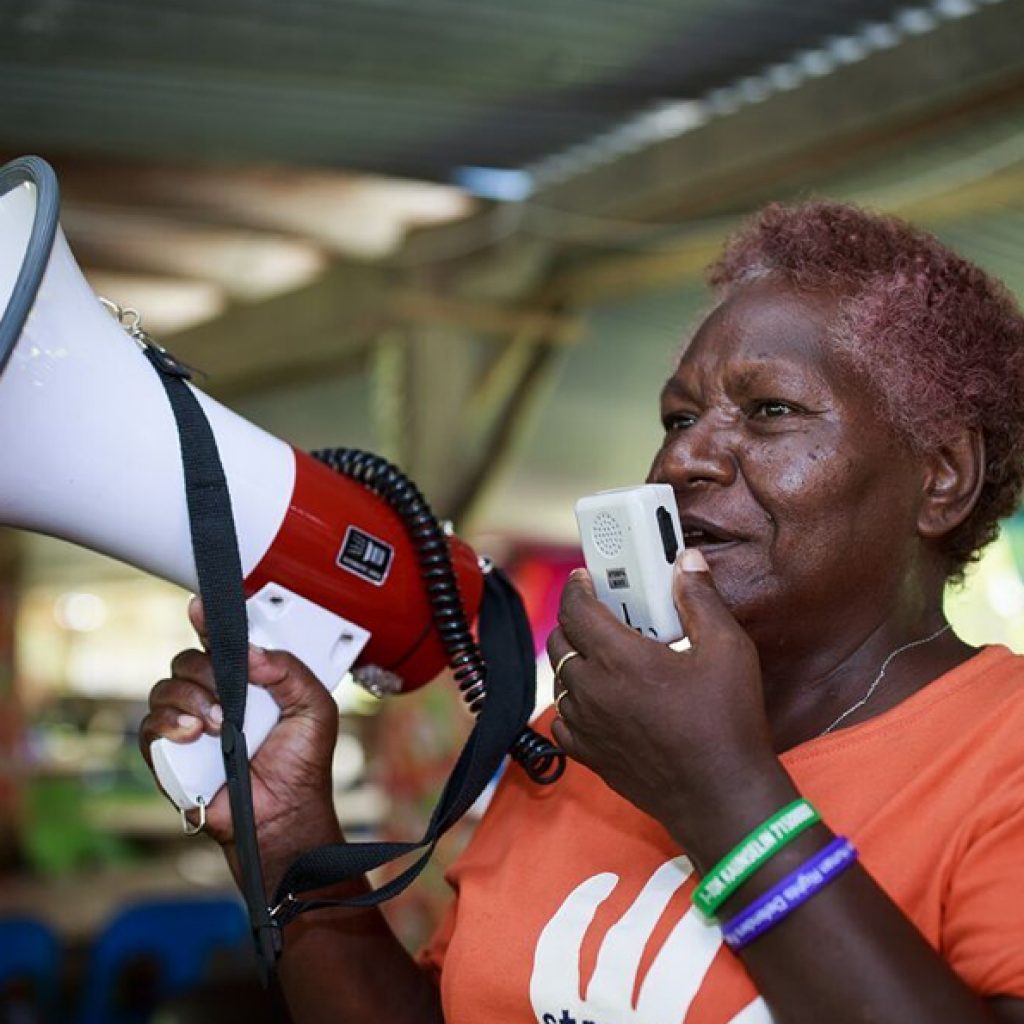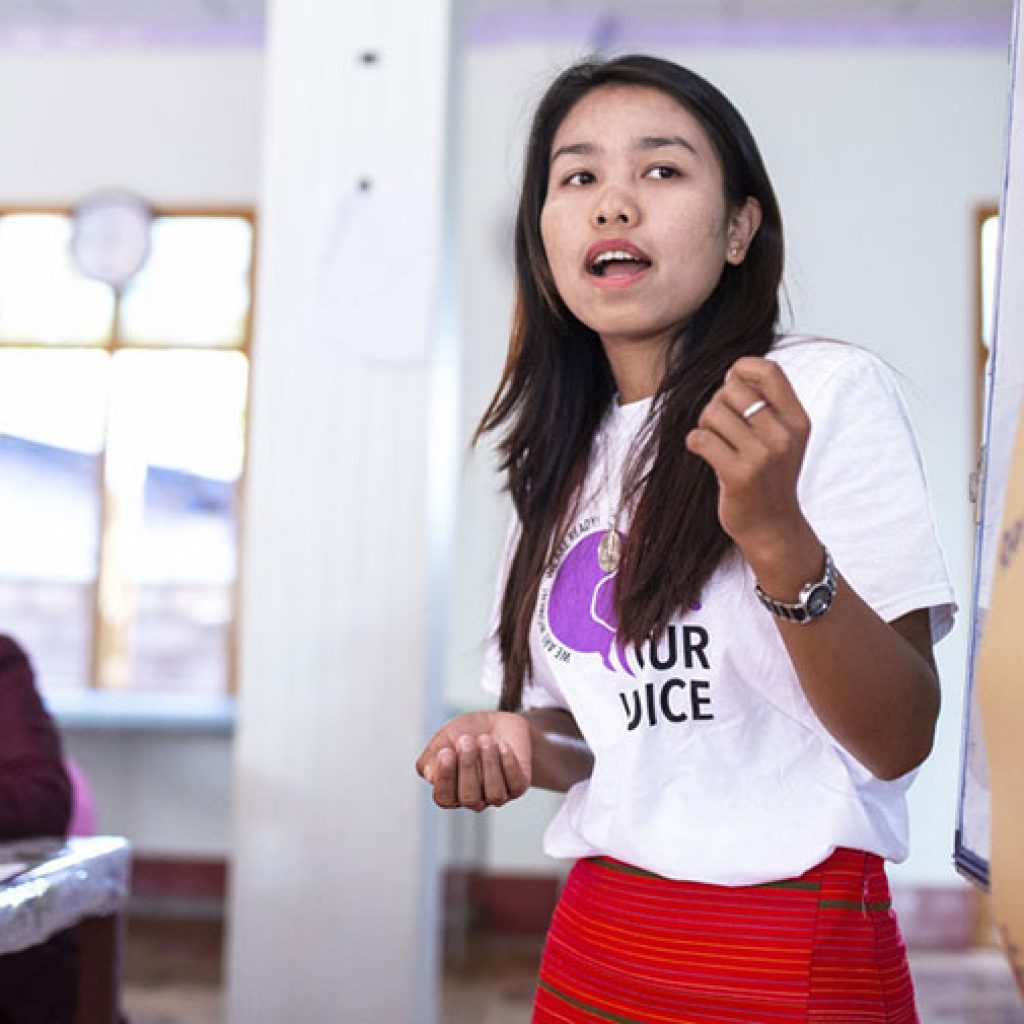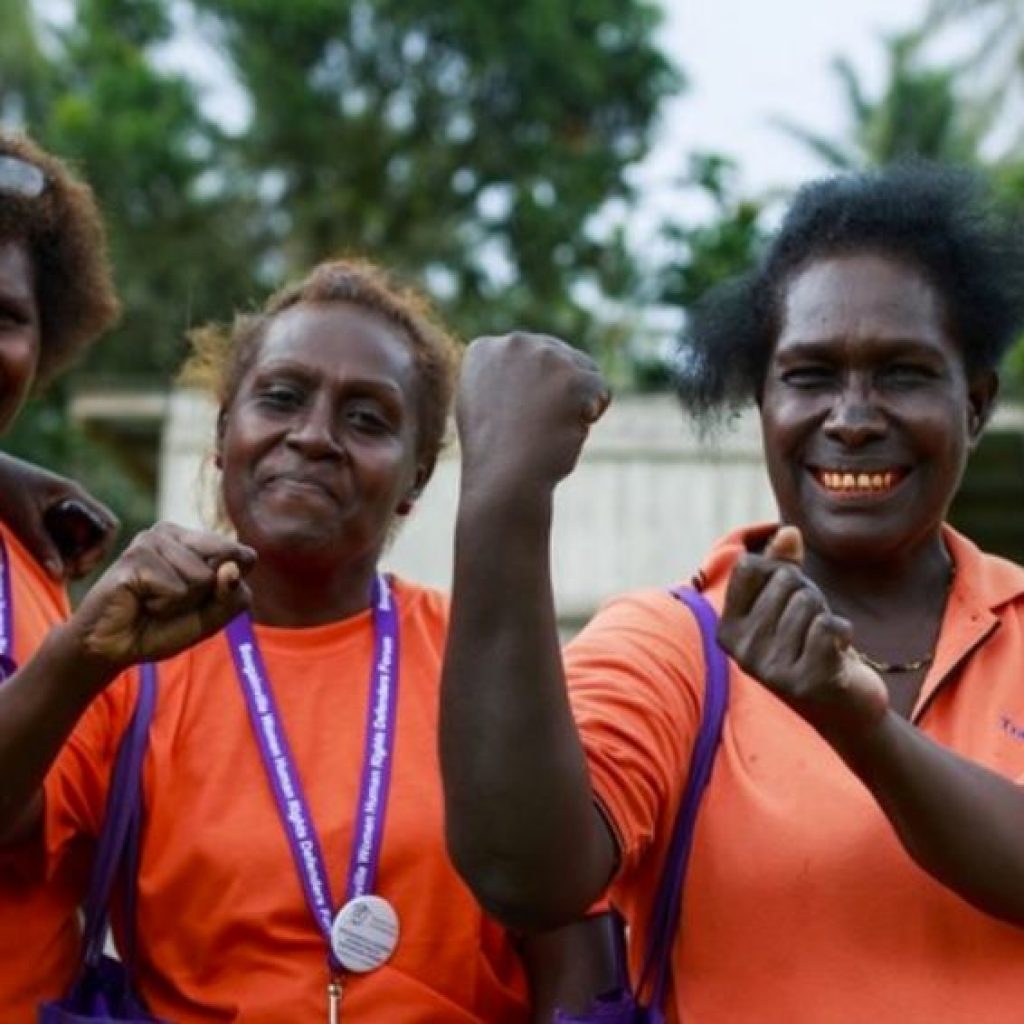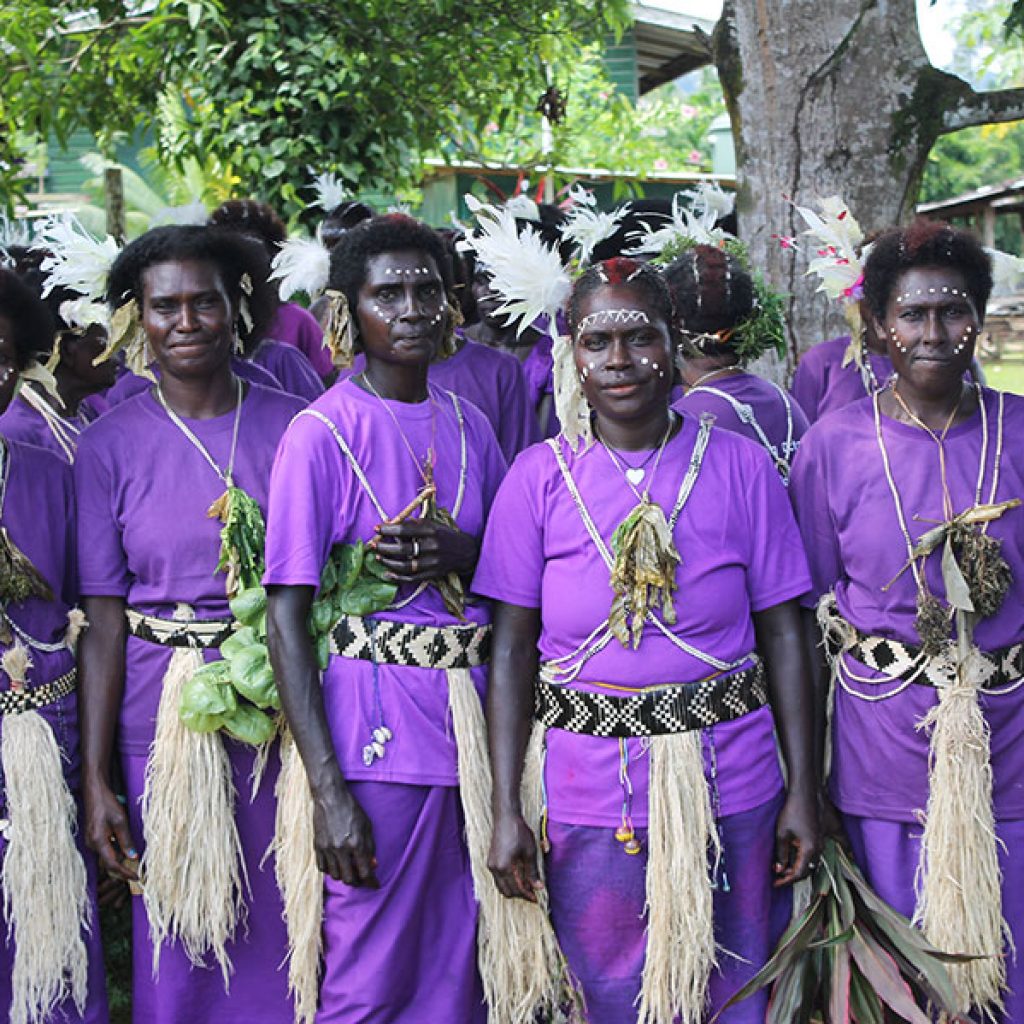
Who are Women Human Rights Defenders and what do they do?
The UN Special Rapporteur on Human Rights Defenders requested IWDA’s input on the status of Women Human Rights Defenders (WHRDs). IWDA works with WHRDs across Asia and the Pacific through our various partner organisations and advocacy networks. WHRDs can be defined as women, in all their diversity, engaged in human rights defence including sexual and reproductive rights, women’s political and economic empowerment, land rights and labour rights.
Who are Women Human Rights Defenders and what do they do?
Women Human Rights Defenders (WHRDs) are women, including trans and non-binary people, who advocate for human rights.
This includes women who advocate for:
- Reproductive health rights, including the right to access birth control or the right to make decisions about their bodies
- Economic rights, including the right to engage in paid work, the right to own property and the recognition of unpaid domestic work
- Political rights, including the right to vote or the right to hold political office
- Basic rights, including the right to live free from violence, the right to education or the right to marry when and who they want
- Land rights, including preventing private companies from evicting people from their land
- Environmental rights, including the protection of water systems, forests or natural resources.
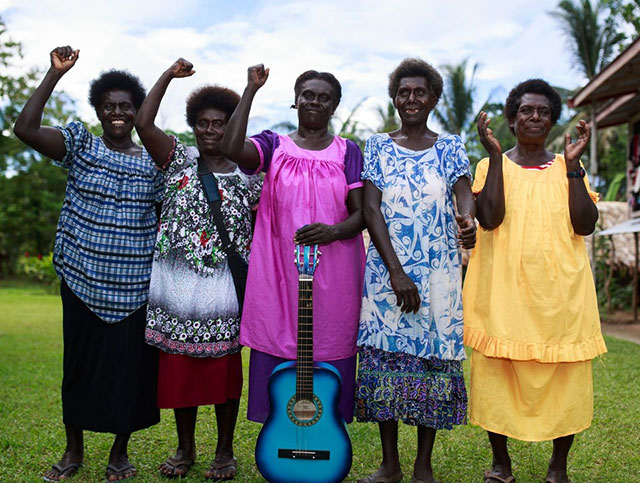
Why do WHRDs need to be protected?
Human rights activists of all genders often do dangerous work. Male activists are often labelled as ‘unpatriotic’ or ‘troublesome,’ while women working in the same area are often attacked on a personal level, such as being called a bad mother, a bad wife or even a bad woman. WHRDs receive threats of sexualised violence, are victims of sexual harassment and have reported receiving anonymous threats against their children. WHRDs go against their traditional roles, and this makes some people angry or uncomfortable.
How does IWDA work with WHRDs, and why is protection important?
IWDA works with WHRDs in Asia and the Pacific to promote women’s rights and gender equality for all. For example, our partner Nazareth Centre for Change (NfRC) in Bougainville works to end gender based violence. NfRC provides emergency services for women experiencing violence, as well as trainings to educate their communities about gender-based violence. Unfortunately, the women who work for NfRC often experience backlash: 34% reported that men in their communities have tried to stop their work; 42% reported being challenged in public because of their work; and 16% have had someone threaten to hurt them, all because of their work as WHRDs. This is just one example of why supporting and protecting WHRDs is so important.


